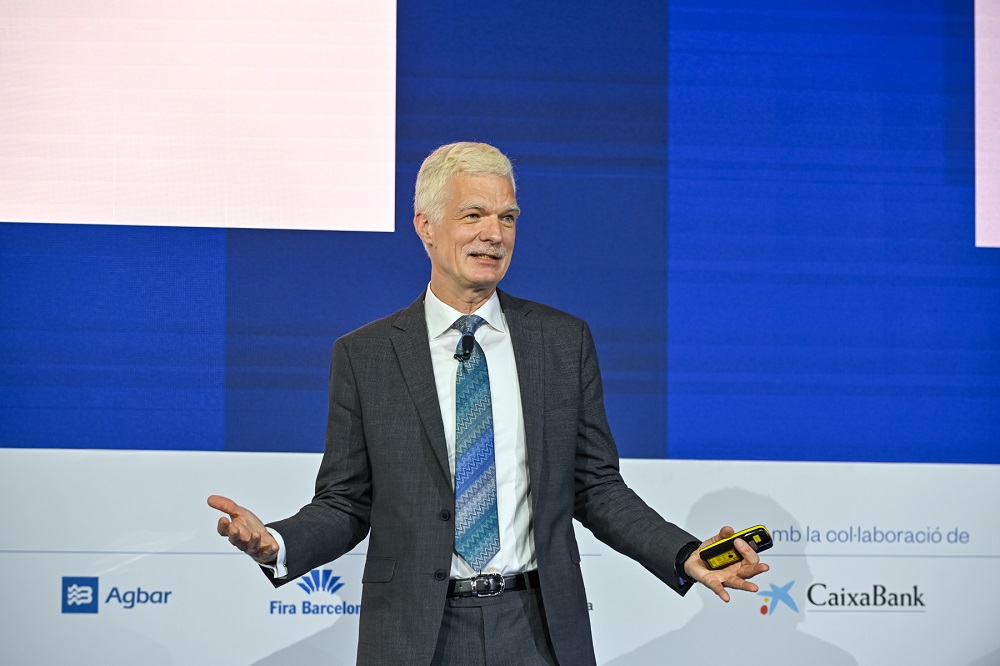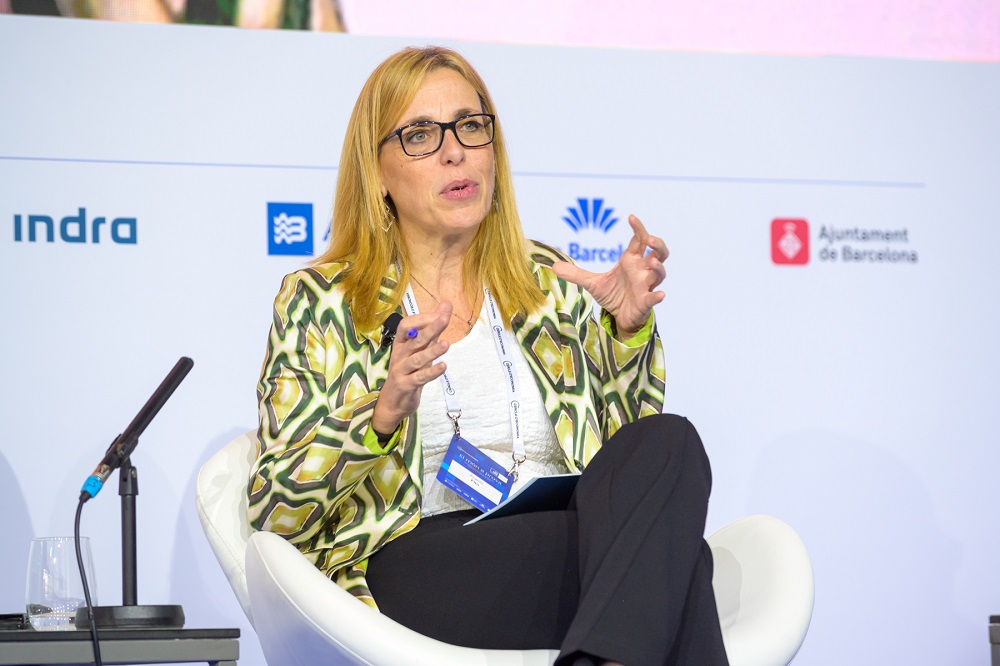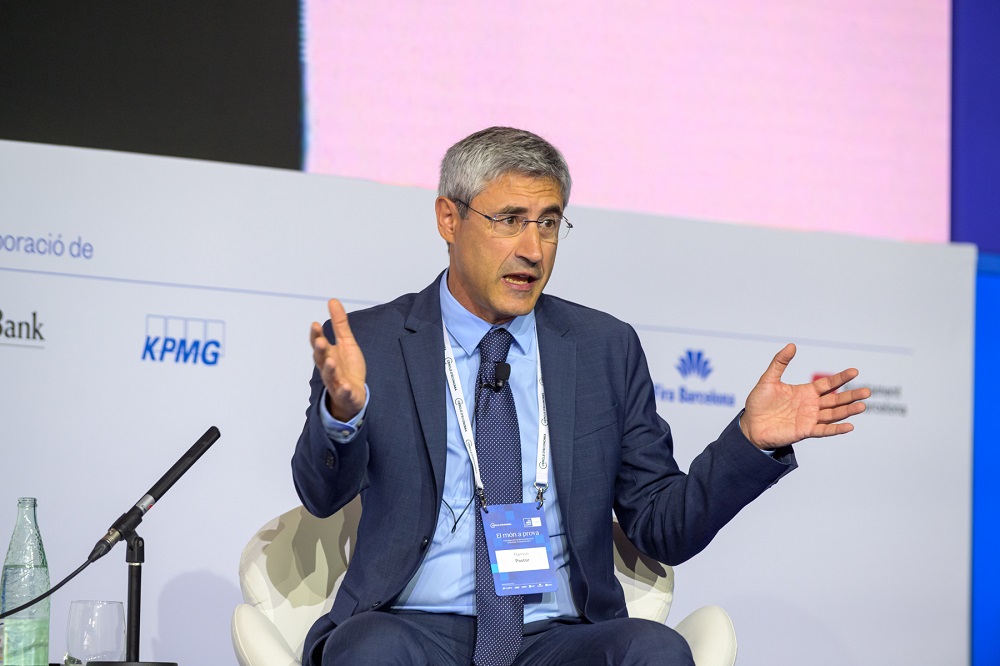Xavier Prats, moderator of the session, referred to the latest PISA report as an introduction. The former Director-General of Education and Culture of the European Commission and advisor to Teach For All referred to the results obtained by Catalonia - among the worst in Spain and OECD countries in the three areas of assessment: mathematics, reading and science - and how these challenges the Catalan education system itself and its ability to generate future professionals who contribute to boost the productivity of companies and the economy.
Andreas Schleicher, Director for Education at the OECD, noted the multiple collective challenges that the future presents - e highlighted climate change and the introduction of Artificial Intelligence (AI) in various areas and presented this technology as an "unpredictable agent" in terms of its evolution in the short term- and, already focused on his field of knowledge, that of education, stated that "the more future scenarios we foresee, the better we will be able to face them".
Regarding the results of the PISA tests in Catalonia, Schleicher explained that "Catalan students can reproduce what they learn at school, but they present certain difficulties in issues of growing global importance, such as the application of knowledge in unfamiliar situations" and, also, that "what is easy to teach, is also easy to be reproduced by AI and digitalization". In his diagnosis, formulated in front of the audience, there is a great distance between the aspirations of young Catalans and what the world needs from them, that is, "in the fact of knowing how to apply good skills to jobs to transform our world".

Investment: quantity versus quality
In the opinion of the OECD representative and in this case regarding the Spanish situation, the country is in a situation in which adding more resources does not present obvious returns: "You have to know how to invest money in education to obtain better results, such as in more qualified teachers. The challenge for Spain is not to add more hours for students, but to improve the productivity of the system".
At the same time, he considered that, at the present time, Catalonia is in a good position since it can make a good investment in this field: "These resources can be managed and a change can be made in the education system," he said.
In her turn to speak, Àngels Fitó, rector of the Universitat Oberta de Catalunya (UOC), wanted to refer to "the three misconceptions" that, in the social context, exist about education and "the three different realities" that have emerged from a study carried out by this university. He expressed it with this reflection: "First of all, it is believed that higher education is only for young people in their early twenties, while vital learning is permanent. Secondly, itineraries in higher education are not linear, but the current challenge is to adopt flexibility in universities to be more permeable to the context. And third, AI must be integrated into education, that is, not excluded."

The ingredients of talent
Ramon Pastor, vice president and general manager of the 3D printing business and general manager of HP's campus in Barcelona, presented what the ingredients of talent are, from the point of view of a representative of the technology sector: "Knowledge about science and technology, critical thinking and an open mind to solve problems".
He stated that in the current educational system there are strengths (teamwork; digital natives students; communication skills and project work), but also weaknesses. Here he highlighted the low knowledge in science and technology and a high specialization from the beginning that, in his opinion, prevents a broader knowledge of the subject.
To close, Pastor made an appeal, addressed to the public administration, but also to the educational environment, companies and society as a whole: "It is important to have a dialogue on a series of relevant aspects and, mainly, to provide legislative stability to the field of education to disassociate it from the effects that the various political cycles can have on it".
